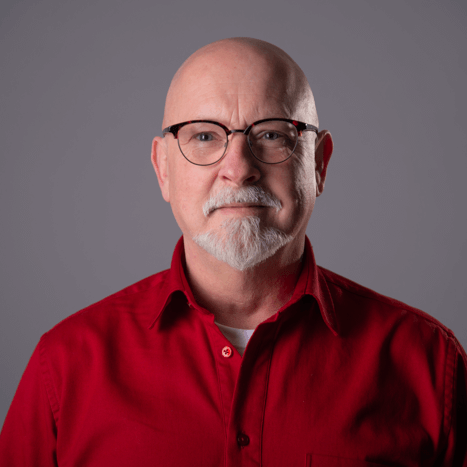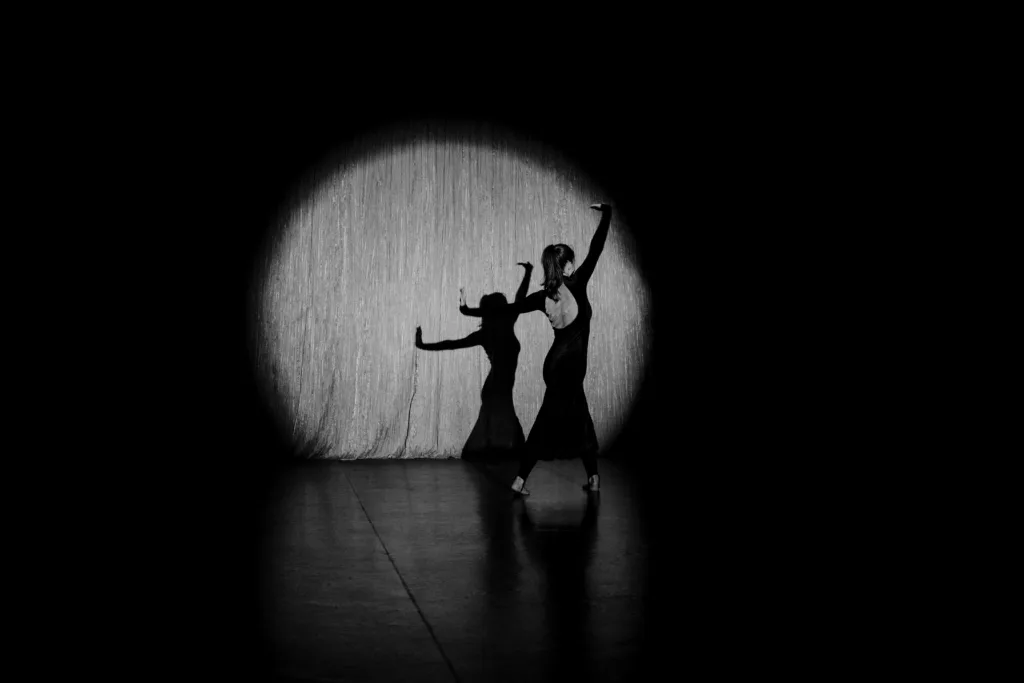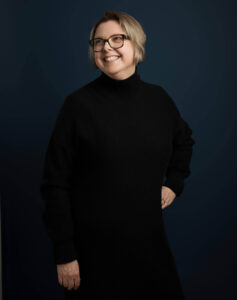At sixty-one, I never imagined I would be back in full-time education, and I’d like to share a wee insight into some of the surprising twists, turns and chance meetings that have brought me from the stage to academia.
Where it all began.
I left school in 1978 with two ‘O’ levels (‘O’ or ‘ordinary’ levels were subject-based qualifications conferred as part of secondary education [between ages 11 -16] in the UK. They were replaced by the GCSE [General Certificate of Secondary Education] in the mid-1980s) – English language and music. By the time I sat my O-Levels, I had been offered a full scholarship to study dance at the Arts Educational Schools, which at the time was in The Barbican, London. What need did I have of any more formal education when my life was going to be spent in the performing arts? As I had been told on more than one occasion, dancers count to eight and return to one. This was all the maths I needed.
My first professional dancing job was as part of the support group for David Essex’s 1980 UK tour. Still at college, I had been working in a small cabaret dance company choreographed by one of my jazz teachers, when David spotted us performing in a club called Maunkberry’s on Jermyn St, London, and asked us to be his opening act. With a constant threat of expulsion (my ballet technique was not improving the way teachers expected), I took the chance to turn professional. My next job was touring the cabaret nightclubs of Italy and the Middle East, in another small company. I travelled out to Italy with the intention of staying three months – adding weeks to my Equity card (at the time, the British Actor’s Equity Association was a closed shop union, and forty weeks’ work had to be completed with union approved jobs in order to gain full membership and audition for West End shows, TV, and film), and experience new styles of choreography.
I worked for the same choreographer for six years – five in Italy (in 1985, as assistant choreographer, dance captain and manager) and the final year as dance captain and assistant choreographer on a live TV series in Spain called Directo En La Noche. When I returned to England, I worked in the West End, national and international tours, TV and film. A dancer’s career is short and as jobs became less frequent, I stayed in theatre, doing anything that paid a wage, which took me from dressing and stage crew, through to wardrobe supervising, stage, and production management.
Finding academia; academia found me.
In 2012, I left a lucrative job in the West End. I hadn’t been happy for some time and, approaching fifty, I knew I had to make a bold change or wither under a lack of interest in a toxic environment. I resigned with nothing to go to. At the time, I was living in Brighton and eventually got a job working back stage at The Dome. Whilst there, and working on the University of Brighton graduation ceremonies, I met Jess Moriarty, head of the MA creative writing course. I was not supposed to be working on the ceremonies, but had been asked to stand by in case someone who wasn’t feeling well had to leave. If they left, I took over. Whilst talking to the man who oversaw every aspect of the graduations – all technical elements; day-to-day rehearsals and comfort of honorary graduates; VIP lunch placements and menus, the list never seemed to end, I mentioned I might, perhaps, maybe, one day write something about my life in Italy and the people, places and adventures that went with it. Over time, following the years abroad, some of my co-workers/friends wondered if I was the one to write it all down, to recall this world we had inhabited. I was also fascinated about the beginnings of the modern cabaret in Paris at the end of the 1800s, and said I’d like to, perhaps, maybe, one day, look into some of that too and write stories that focused on some of the lesser known aspects of the era. He had suggested and arranged this meeting with Jess.
After a swift, unprepared elevator pitch, Jess looked into the distance and said, “I think there’s a PhD in here somewhere. Find my email address on the university website and send me some words. Let’s talk.”
The very thought of the leap from two O-Levels to PhD made me laugh. I mean, preposterous, right?
A year or so later, after several meetings and a lot of encouragement from Jess, I successfully applied for the Creative Writing MA course at the University of Brighton, and graduated in February 2020, just weeks before lockdown. I took time out to decide whether I really wanted to take this final step and start the doctorate, but as covid induced boredom set in, I reached for my diaries and the many envelopes of photos I’d taken, and wrote as much as I could remember, starting in September 1980 and finishing in January 1986, shortly before we flew to Spain to start the TV series.
Finding my PhD place.
I was accepted into the doctoral college in March 2021 and started my PhD properly in October the same year. As a creative writer, my thesis will not look like most. 80,000 words will be of my book, Blond Angel, an autoethnographic account of my life in Italy, that takes in, not just my lived experience, but also insight into a community of British dancers working the cabaret nightclubs of Europe in the 1970s and 1980s. This era of dance history has yet to be acknowledged or documented so my writing becomes a necessary record for these stories, or they will die as we do. Using magical realism, I weave researched, imagined stories of people and places from late-nineteenth-century Paris into my narrative, allowing me to explore the time from a first-person viewpoint.
Accompanying this will be a 20,000-word critical reflection of the methods, methodologies and choices I have made in writing the book and my approach to doctoral writing that resists the patriarchal discourse of conventional academic narratives, written in the style of an autoethnographic novel.
Tackling the loneliness of the PhD journey.
I read, often, that a doctorate is a lonely path and not an easy journey. And rightly so. If we choose it to be. I have set up a Teams group called PGR Café. This is a space for people to introduce themselves and talk about their research, put out calls for research participants, webinar and conference alerts, and regularly meet over coffee to support each other, help lessen the sense of loneliness, and kvetch about whatever is frustrating us. I am also a PGRS (Post Graduate Research Student) ambassador, supporting final year BA students across all subjects with workshops ranging from writing abstracts, general writing sessions, to life beyond a bachelor’s, focusing on master’s and doctoral study.
I still work on the University of Brighton graduation ceremonies as one of the technical production management dealing with the building of stage, lighting, sound, audio visual and live feed, and show-calling each ceremony. I also meet with honorary graduates and visiting dignitaries, walking them through what will be expected of them during the ceremony, and helping them feel less daunted by the occasion.
A dancer’s life is short, focusing on the singular intention of technique perfection, so one is never encouraged to look to a future after dance. I never did. I was always going to be a dancer. In my mind and heart, I still am. When I made the decision to leave London eleven years ago, I never, for a moment, thought I’d be half way through a doctorate, having reached a moment where the confusion and frustration of the past eighteen months is beginning to click together, creating excitement that has my fingers falling over themselves on my keyboard as I try and type as fast as my mind is moving.
At the end of each graduation ceremony, the graduates are told, ‘we never stop learning’. To have this new career, at what is the final third of my life is such a great opportunity. Would I recommend pursuing further/higher education later in life?
Old dogs, new tricks? Damn right!






